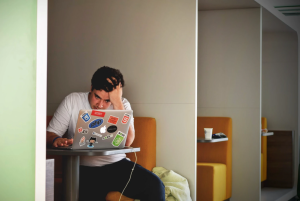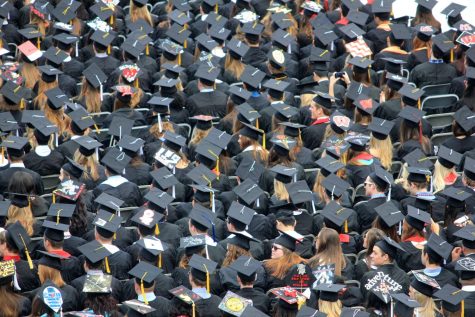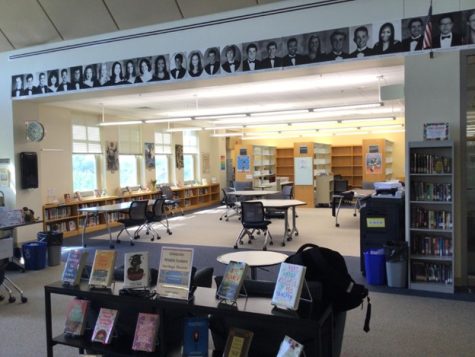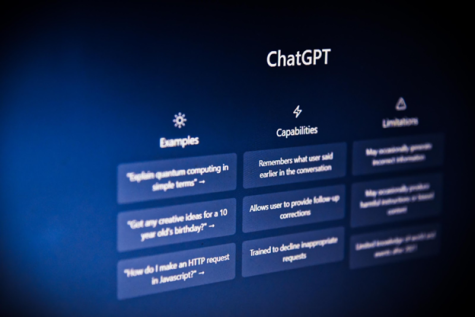Online Learning and Academic Integrity
With the pandemic still raging, students at Good Counsel are given a choice to attend school in person or remain in virtual learning. Moreover, with the internet at our fingertips, academic integrity has become a real concern. How can teachers be sure that students are learning? Furthermore, when we return to campus completely, how will this access to every answer impact our future education?
All assessments and quizzes have become open book, open note, open browser, whether they are intended to be or not. Students can get any information they want now, no matter how important the assignment is. The internet can be a beneficial resource for students struggling to understand a concept or find inspiration. However, there is also no doubt that the internet can be a tool to assist in cheating.

Sophia Bordenick ‘24, a freshman, speaks on the issue, saying, “I think the internet can be beneficial for studying, although sometimes it can be misleading. To me, it always feels like a disadvantage when I’m at school taking a test, but half the class is at home with access to study guides, classwork, and no one to monitor them.” Her comment raises a fundamental question of whether the students at home are at an advantage over on-campus students.
Cheating can weigh on a student’s morals too. Rielle Osafo ‘24, also a freshman, says, “Personally, I think it’s conflicting in a way. Sometimes you’re really tempted to use it, but you know you really shouldn’t. Morally I don’t want to, but sometimes I feel like I do give in, because it’s harder with no one watching you, and the chances of getting caught are really low since you’re behind a screen.” Freshman Grace Lowden ‘24 agrees, “It’s tempting, but wrong in a way. You know you’re not supposed to use all the information on the planet, but you can’t help yourself because there’s so much access to it.”
Often, the idea of a better grade can blind students into opening a new Chrome tab and googling the answer to a question. However, this game can be extremely detrimental to students’ education in the future. We may be able to copy and paste the answers to our classwork now quickly. However, that material will not be ingrained into our memory the same as if we did it in class. Whenever we go back in person, students who used the internet for their work a bit too much might fall behind and have gaps in their learning, causing them to struggle.
Freshman Zoe Tate ‘24 comments, “I don’t personally cheat in class, but I can see why people would.” She continues to explain why many of her classmates and friends openly admit to using the internet when they aren’t necessarily supposed to. “It’s really hard to focus on Zoom all day, and then we have homework after. It’s so draining, and we have to study for assessments too. The internet is really helpful to people who think they would fail otherwise.”

Katie Saponaro ‘24, also a freshman at GC, says, “I think it’s definitely a lot more tempting for kids to just quickly turn off their camera and google the answers because that’s easiest. I know that’s happening, and it kinda sucks that it has become a sort of ‘norm,’ but as time goes on I’m sure it will become more unattractive when kids learn that they don’t actually learn things by doing that.” To agree with her is senior Karla Lovato ‘21. She says, “I think students aren’t being so dishonest because most teachers say that every assignment is an open note, as well as teachers being flexible with assignments. However, since school is basically “cheatable” now, it encourages people to try less and solely depend on their resources, which I can admit has happened to me, and it presents a less accurate representation of what students actually know.”
While distance learning continues, it is imperative to keep the Xaverian value of Trust in mind regardless of our struggles. As Good Counsel students, we must maintain our perseverance and continue to push through these difficult times.











